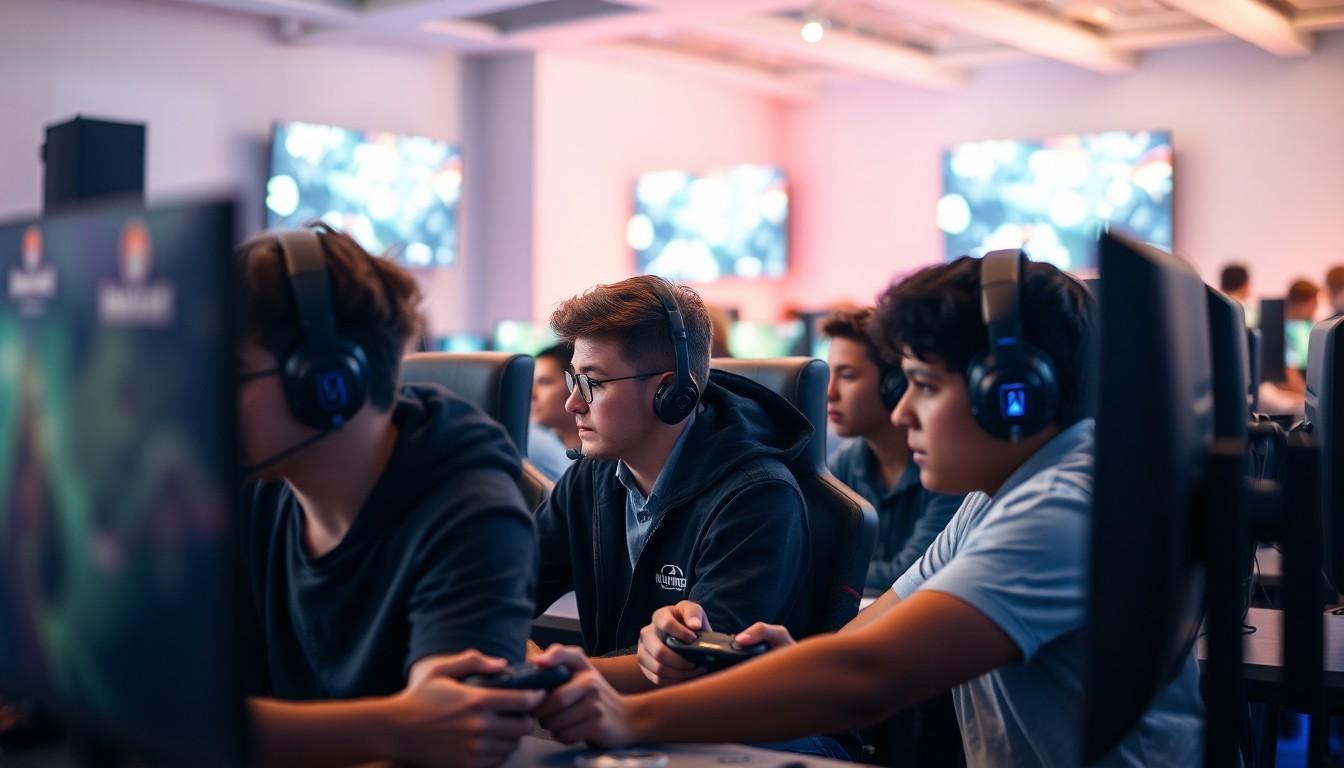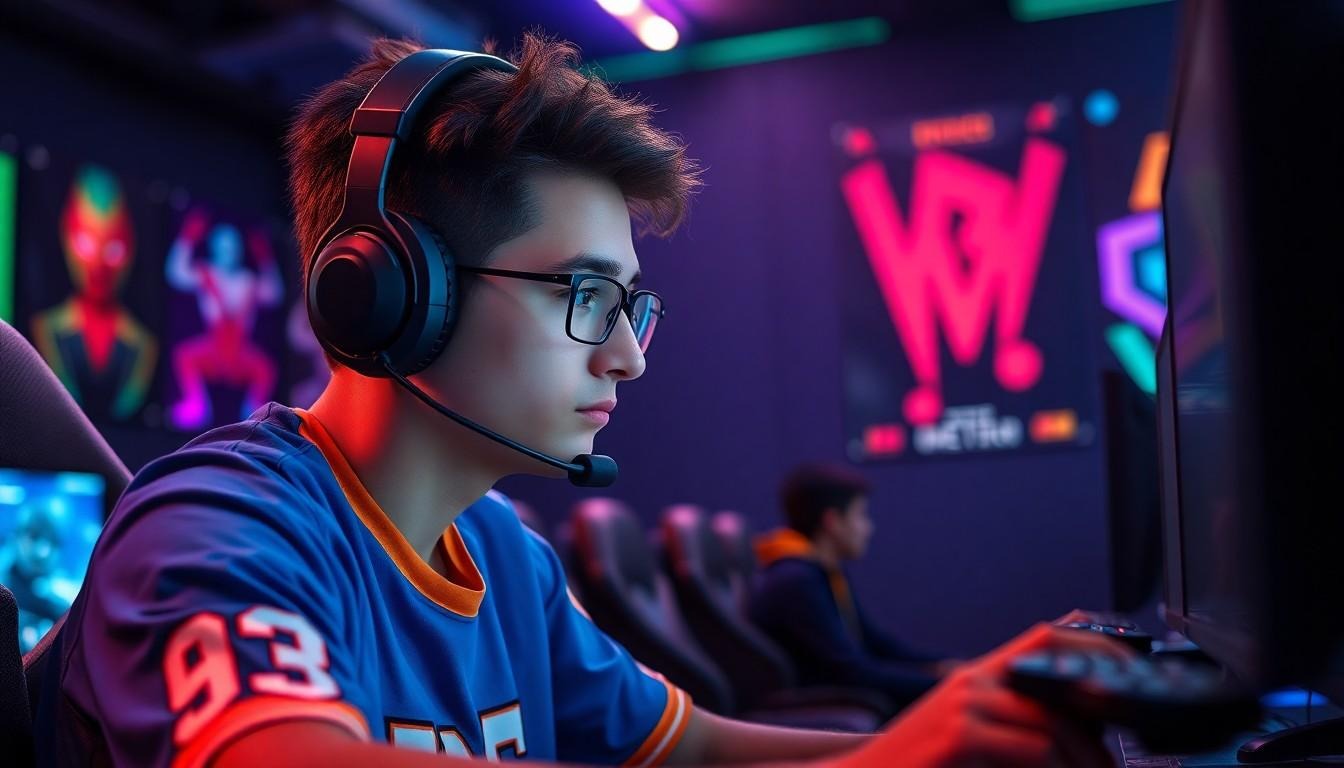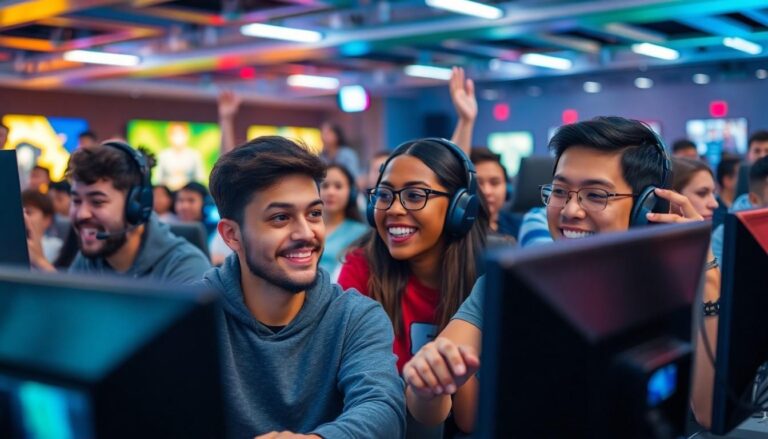In a world where everyone’s vying for the top spot, competitive play challenges have emerged as the ultimate battleground. It’s not just about bragging rights; it’s where strategy meets skill and a sprinkle of chaos. Imagine the thrill of outsmarting opponents while trying not to spill your drink in the process.
Competitive Play Challenge
Competitive play challenges offer players an arena to demonstrate their skills and strategic thinking. They provide an opportunity for intense competition and engaging gameplay.
Definition And Purpose
Competitive play challenges refer to official gaming contests where players compete against each other to achieve specific objectives. These challenges often have set rules and formats that require players to master game mechanics and develop strategies. The purpose of these challenges stems from the desire to test one’s abilities and gain recognition among peers. Players enter these competitions not just for fun but also to prove themselves and achieve notable rankings.
Importance In Gaming Community
Competitive play challenges hold significant importance in the gaming community. They foster a culture of skill development and motivation, encouraging players to improve their gameplay. Events like tournaments and online leagues attract thousands of participants, creating vibrant ecosystems around various games. Furthermore, these challenges promote camaraderie among players as they share experiences and learn from each other. Recognition gained through participation in these events elevates a player’s status within the community, solidifying the relevance of competitive play challenges in modern gaming.
Types Of Competitive Play Challenges

Competitive play challenges exist in various formats catering to different player preferences and skill levels. These formats enhance engagement and foster community interaction.
Online Tournaments
Online tournaments bring players together from across the globe. These competitions often feature a bracket system where players compete in knockout rounds. Numerous platforms host these events, with popular titles like Fortnite and League of Legends. Skill levels vary, attracting both amateurs and seasoned professionals. Participants may win cash prizes, in-game rewards, or recognition within the gaming community. Livestreaming adds another layer of excitement, allowing audiences to watch matches in real time. Engaging commentary enhances the viewing experience, making online tournaments a thrilling spectacle for fans.
Local Events
Local events create opportunities for face-to-face competition among players in the same area. These gatherings often take place in local game shops or community centers. Friendly competition fosters camaraderie and strengthens relationships among local gamers. Participants can enjoy smaller-scale tournaments that often include various genres, from fighting games to card games. Organizers may also facilitate practice sessions to help players refine their skills. By providing an intimate atmosphere, local events encourage player interaction and community building. Players often feel a sense of pride representing their local scene in these challenges.
Strategies For Success In Competitive Play Challenges
Effective strategies can greatly enhance performance in competitive play challenges. Players enhance their abilities through focused skill development and coordinated team efforts.
Skill Development
Mastery of game mechanics significantly impacts performance. Regular practice sessions help players refine their skills, making them more proficient in executing game strategies. Learning from both victories and defeats aids growth, creating opportunities for players to identify strengths and weaknesses. Analyzing gameplay through replays provides insights into decision-making and tactics. Engaging with community resources, like tutorials and training programs, boosts understanding of advanced techniques. Continuous adaptation to game updates ensures relevance in rapidly changing environments. These approaches foster resilience and expertise, vital for conquering competitive challenges.
Team Coordination
Strong team coordination leads to heightened success in competitive settings. Establishing clear roles within the team sets the foundation for effective collaboration. Communication during matches plays a crucial role, allowing for quick adjustments and strategy execution. Utilizing voice chat or messaging applications improves real-time interaction, enhancing tactical awareness. Practicing together strengthens synergy and builds trust among team members. Regularly reviewing past games helps identify missteps and refine strategies. Teams that maintain a positive atmosphere are more likely to thrive, supporting each individual’s contribution to overall success. Such coordinated efforts create a competitive edge in challenging environments.
Common Obstacles Players Face
Players encounter several obstacles in competitive play challenges that can hinder performance. These factors often disrupt the flow of gameplay and affect overall enjoyment.
Mental Pressure
Mental pressure significantly impacts a player’s performance. High stakes in competitions can lead to anxiety that affects decision-making and reaction times. Staying focused becomes challenging when external expectations weigh heavily. Players often experience the pressure to perform, especially in critical moments or against skilled opponents. Techniques like mindfulness and breathing exercises may help in managing stress, allowing players to maintain composure. Emphasizing a positive mindset encourages resilience, improving performance under pressure.
Technical Issues
Technical issues present another major obstacle for players. Connectivity problems, hardware malfunctions, or software glitches can disrupt gameplay and lead to frustrating experiences. Lagging connections can affect responsiveness, which is crucial during competitive matches. Reliable hardware and stable internet connections play essential roles in ensuring smooth gameplay. Regularly updating software and hardware can mitigate these risks. Players benefit from having backup options, like alternative devices or connections, to minimize interruptions during critical moments in competition.




